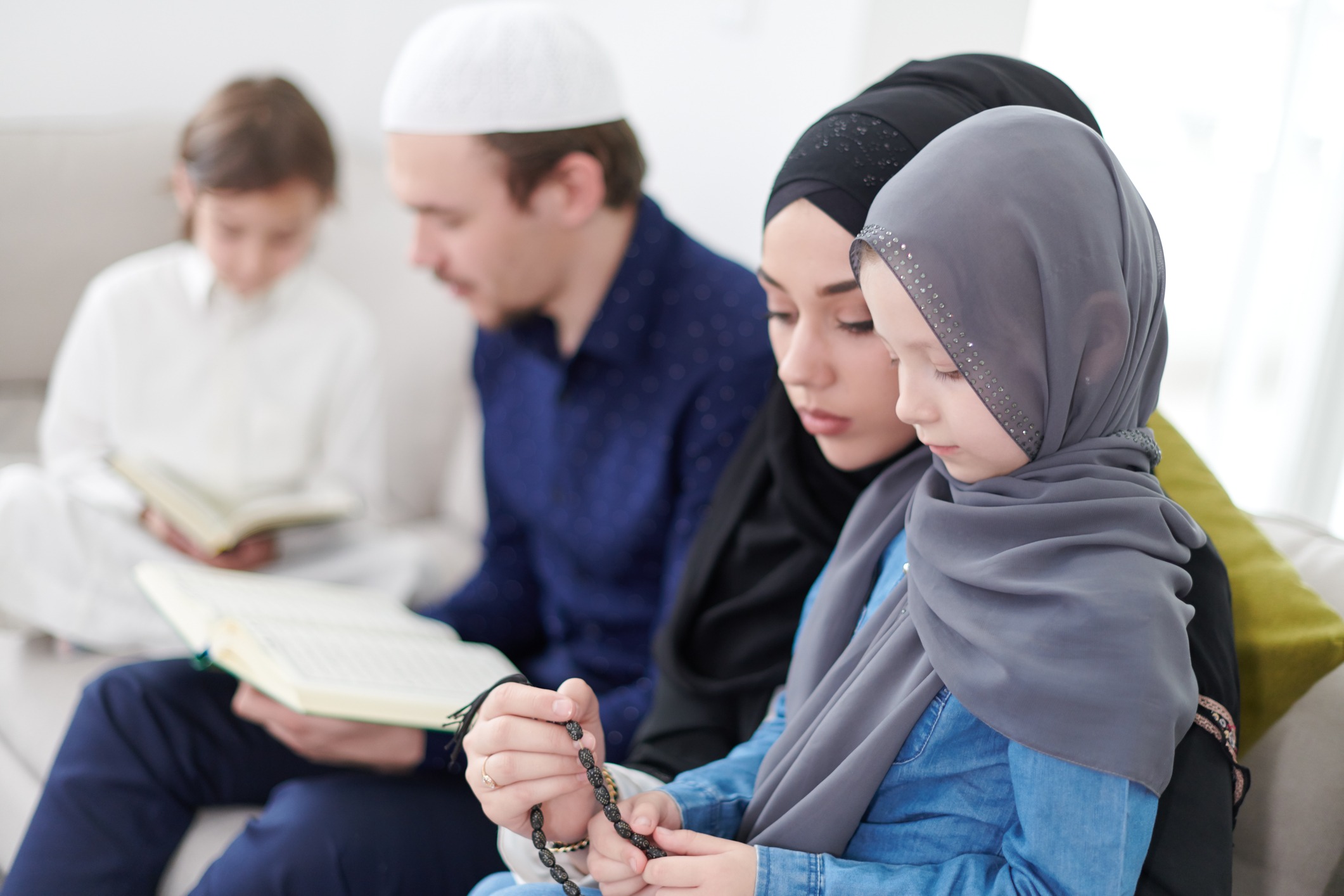Het effect van het gedrag
van opvoeders en verzorgers op jonge moslims
Het gedrag van ouders, opvoeders, leraren, du’āt en sheikhs heeft een enorm effect op de tarbiyah (opvoeding, ontwikkeling en grootbrengen) van jonge mensen. Ze moeten dus opletten en goede voorbeelden geven die het hart van jonge mensen raken. Opvoeders en verzorgers moeten rechtvaardig, vroom, serieus, vriendelijk, edelmoedig, nederig zijn, opschepperig gedrag vermijden, en mensen zijn die kennis zoeken en hun best doen om anderen te helpen. Dit is geworteld in hun aanbidding van Allah; want dat is het eerste dat de harten en de ledematen verbetert. Kijk naar dit voorbeeld van Allah’s Boodschapper (صلى الله عليه وسلم) die bij een jonge Metgezel bleef tot de dag dat hij stierf. ‘Abdullah ibn’ Abbās (رضي الله عنهما) was nog een jongen en bezocht zijn tante van zijn moederszijde. Hij zei:
بت عند خالتي ميمونة ليلة فقام النبي صلى الله عليه وسلم فلما كان في بعض الليل قام رسول الله صلى الله عليه وسلم فتوضأ من شن معلق وضوءا خفيفا ثم قام يصلي فقمت فتوضأت نحوا مما توضأ ثم جئت فقمت عن يساره فحولني فجعلني عن يمينه ثم صلى ما شاء اللَّهُ
‘Ik bleef overnachten in het huis van mijn tante, Maimunah. De profeet (صلى الله عليه وسلم) sliep een deel van de nacht, en toen, laat in de nacht, stond hij op en voerde de rituele wassing uit van een hangende waterhuid, en het was een lichte wassing en toen stond hij op voor het gebed . Ook ik (volgde hem) voerde een soortgelijke wassing uit, en toen ging ik links van hem staan. Hij pakte me echter vast en bewoog me naar rechts en bad toen zoveel als Allah het wilde. Daarna bleef hij weer liggen en sliep tot zijn ademhaling te horen was. Later kwam de Mu’adhin (oproeper tot het gebed) naar hem toe en vertelde hem dat het tijd was voor gebed … “(Bukhāri, 138; Muslim, 763)
Ibn ‘Abbās deelde deze ervaring als jonge jongen met degene die hij liefhad en respecteerde. Hij zag de Boodschapper (صلى الله عليه وسلم) opstaan, wudoo doen en beginnen te bidden. Dus, wat deed hij? Hetzelfde dat elke jongere doet van degene die hij respecteert, liefheeft en bewondert. Hij sloeg hem gade, volgde hem en voegde zich bij hem zodat hij zelfs zei: “Ik heb ook een soortgelijke wassing uitgevoerd.”
Het belang van het geven van een goed voorbeeld en het vermijden van een slecht voorbeeld in de ogen van jonge mensen mag niet worden onderschat, naast de immense beloning voor degene die het goede voorbeeld geeft, gevolgd door anderen. Neem deze overlevering van Jareer ibn Abdillāh (رضي الله عنه) die zei: “Terwijl we bij de Boodschapper van Allah waren in de vroege uren van de ochtend, kwamen er enkele mensen die nauwelijks gekleed waren en blootsvoets waren, met hun zwaarden om hun nek. De meesten van hen behoorden tot de stam Mudar. Het gezicht van de Boodschapper van Allah veranderde toen hij hen in zulke ellendige armoede zag. ” Na het gebed stond hij op en sprak de mensen toe, dus reciteerde hij:
‘O jij die gelooft! Vrees Allah en houd u aan uw plicht jegens Hem. En laat ieder mens kijken naar wat hij voor morgen heeft uitgezonden, en Allah vrezen. Voorwaar, Allah is Zich bewust van wat u doet. ‘
‘Daarna gaven ze liefdadigheid, sommigen gaven een dinar, anderen een dirham, of een kledingstuk, of een sā’ (bijna 3 kg) tarwe of een sā’ van dadels, totdat de boodschapper zei:
‘Zelfs een halve dadel.’
Een man uit de Ansār kwam met een zak geld die zijn handen nauwelijks konden optillen. De mensen volgden elkaar in het geven van liefdadigheid totdat ik twee hopen voedsel en kleding zag, en ik zag het gezicht van de Boodschapper van Allah glanzen als goud van vreugde. Toen zei de Boodschapper van Allah:
‘Degene die een goed precedent schept in de islam, hij zal daarvoor de beloning ontvangen, en de beloning van degenen die ernaar handelden, zonder dat dat in het minst afbreuk doet aan hun beloning. En wie een slecht precedent schept in de islam, hij zal daarvoor een zondelast hebben, en de last van degenen die er in overeenstemming mee handelden, zonder dat dat in het minst hun last zou verminderen.’ (An-Nasā’i, 2554; Muslim, 1017)





